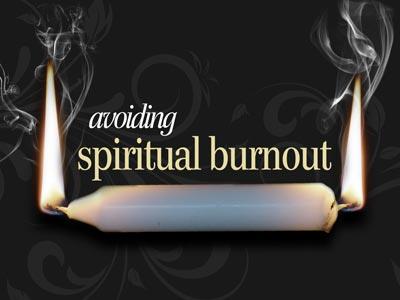-
Dealing With Discouragement Series
Contributed by Jefferson Williams on Oct 9, 2023 (message contributor)
Summary: Haggai brings a word from the Lord to help the people deal with discouragement
Haggai: The Best is Yet To Come
Haggai: 2:1-9
Pastor Jefferson M. Williams
Chenoa Baptist Church
10-08-2023
Satan’s Tool Box
It was advertised that the devil was going to put his tools up for sale. On the date of the sale, the tools were placed for public inspection, each being marked with its sale price -Hatred, Envy, Jealousy, Doubt, Lying, Pride, and so on.
Laid apart from the rest of the pile was a harmless-looking tool, well-worn and priced very high.
“What’s this one do?” asked one of the purchasers.
“Good eye,” said the adversary, “That’s Discouragement.”
“Why is it so expensive?” The purchaser asked.
“Because it’s more useful to me than the others. I can pry open and get inside a person’s heart with that one when I cannot get near him with other tools.
The accuser smiled widely and continued:
“Once I get inside, I can make him do what I choose. It’s a badly worn tool because I use it on almost everyone.”
Has anyone here ever been discouraged? We all have felt discouraged from time to time.
This morning, we are going to see the people of Israel deal with discouragement and how Haggai encourages them to move forward in faith.
Review
Last week, we began this study of Haggai by looking closely at his first sermon to the returning exiles.
In order to understand the book of Haggai, I need to set the context of the book.
In 607 BC, the Babylonians attacked the southern kingdom of Judah. This had been prophesied by Jeremiah and happened as a result of the people’s disobedience to God’s rule and His ways. The people would go into exile for seventy years.
The Babylonians started deporting thousands of the best and brightest of the Israelites, like Daniel and his three friends.
In 586 BC, The Babylonians destroyed Jerusalem and tore down the Temple.
In 539 BC, The Medes-Persians defeated Babylon. King Cyrus, gave the order allowing Jewish people to return to their homeland. Only about 50,000 returned home.
They returned home to a city that had been destroyed. They set to work immediately.
In 536 BC, a new altar was built and construction on the new Temple started but then stopped. For the next 16 years, the foundation of the Temple lay untouched.
Enter Haggai in 520 BC. We don’t know much about Haggai. It is believed that he was in his 70s and his name means “feast.”
Haggai is unique among the prophetic books because it is entirely in prose. Most of the other books are poetry.
Haggai consists of 4 sermons, delivered over a four-month period.
He delivered the first message on August 29, 520 BC.
The Lord, through the prophet Haggai confronts the people’s misplaced priorities:
“Is it a time for you yourselves to be living in your paneled houses, while this house remains a ruin?”
The people had stopped working on the Temple and had focused on building their own houses.
Yes, they had a million excuses and they were materialistic and self-absorbed.
We talked last week that there was a reason for this.
When they began to rebuild, Ezra tells us that they experienced intense opposition:
“Then the peoples around them set out to discourage the people of Judah and make them afraid to go on building. They bribed officials to work against them and frustrate their plans during the entire reign of Cyrus King of Persia and down to the reign of Darius King of Persia.” ( Ezra 4:4-5).
We are even told that the surrounding people tried to sue them and threatened them.
“Thus the work on the house of God in Jerusalem came to a standstill until the second year of the reign of Darius king of Persia.” (.v24)
The people became weary and discouraged.
But because of Haggai’s challenge, the people obeyed and began working on the Temple again.
Less than a month later, they are discouraged again. And again, Haggai has a message from the Lord for them.
Turn with me to Haggai 2.
Prayer.
Dates Matter
“On the twenty-first day of the seventh month, the word of the Lord came through the prophet Haggai:
This is September 21, 520 BC. This month was typically a busy month for the Israelites.
The first day of the month was the Feast of Trumpets. This is known as Rosh Hashanah which our Jewish friends just celebrated last month.
Shofars (ram’s horns) are blown, reminding people to repent and encouraging reflection.
The tenth day of the month was the Day of Atonement. This is called Yom Kippur and it is the most solemn day of the Hebrew calendar. This is a day of fasting and praying for the forgiveness of sins. (September 24 this year)
And the fifteenth day of the month started a week-long celebration of the Feast of Tabernacles.

 Sermon Central
Sermon Central



